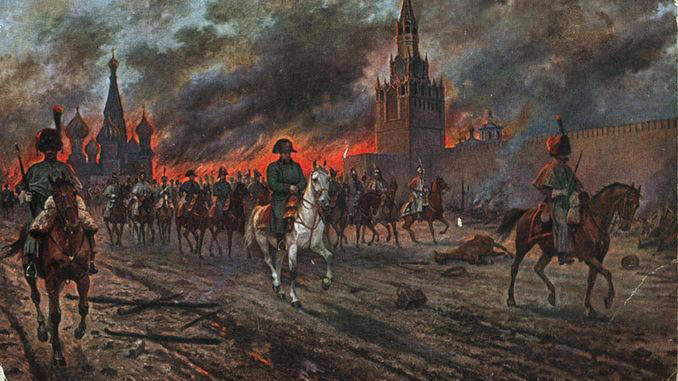
Confederation of the Rhine
Napoleon’s armies now controlled much of the Holy Roman Empire. Most German states on the right bank grouped together into the “Confederation of the Rhine” (1806) under French protection. Later, almost all other states joined, except for Prussia, Austria, Danish Holstein and Swedish Pomerania. De facto, the Holy Roman Empire did not exist anymore. Pushed by Napoleon, Francis II abdicated and declared the abolition of the Holy Roman Empire. From now on, he was “Emperor of Austria”.
The Grand Duchy of Berg as model state
On March 15, 1806, the Duke of Berg, in personal union King of Bavaria, ceded the duchy to Napoleon. By decree of March 26, 1806, Napoleon assigned it to his cavalry general and brother-in-law, Joachim Murat. When Murat became King of Naples in 1808, Napoleon himself took over the Grand Duchy of Berg.
On February 12, 1808, serfdom was abolished in the Grand Duchy of Berg. Two years later, on January 1, 1810, the French Franc was introduced. The same day, the Code Civil or Code Napoléon entered in force and assured equality of all citizens before the law. Administration and economy were reorganized along the lines of the French model, the manorial system was abolished, allowing freedom of trade. In 1812, a uniform jurisdiction followed. Many changes were changes for the better.
But Napoleon also forcibly enlisted soldiers from the Confederation of the Rhine to fight in his campaigns. Military service in the French army became mandatory, since 1806, the Grand Duchy of Berg had to recruit 5,000 men a year for Napoleon’s wars. Soldiers from Berg fought against Prussia and in Spain. In the later Napoleonic war, countless French and auxiliary soldiers would lose their lives.
Back then in the Siebengebirge
Napoleon enlarged the Grand Duchy of Berg, now also the town of Königswinter with the mountains Wolkenburg and Drachenfels came to Berg. Napoleon organized the Grand Duchy of Berg according to the French model as a model state for the Rhine Confederation.
Prussian campaign
Finally, the Prussian King Frederick William III (1797-1840) took up arms against Napoleon, but now he was on his own. In the Battle of Jena-Auerstedt, Prussia suffered a devastating defeat, the King and his family fled to Memel in Eastern Prussia, and Napoleon rode into Berlin at the top of his troops. Under the treaty of Tilsit in 1807, Prussia lost almost half of her territories, including all possessions west of the Elbe river. In vain Queen Louise asked for milder terms.
Napoleon established the Kingdom of Westphalia and gave it to his younger brother Jérome, to become a model state for the Confederation of the Rhine. Prussia was occupied by French troops, and forced into a military alliance with France. In these times of hardships, great men such as Stein and Hardenberg, set about reforming and modernizing the Prussian state, General Gneisenau reformed the Prussian army.
Continental system and beginning resistance
Since Napoleon could not conquer England, he intended to fight her by economic mean, and decreed the Continental system. No country was allowed to trade with England, no harbor was allowed to let English ships moor. At first, these measures hit England’s economy, but then English tradesmen found new markets for their merchandises in their colonies. Eventually, the continental system rather strengthened England as a naval and trading power, whereas people on the continent suffered.
Still Napoleon was far more powerful, but resistance gradually grew. The Spaniards waged a guerilla war against French occupation. Only after long negotiations did Napoleon get military assistance from the Confederation of the Rhine. In Prussia and other German states, there was at first only little resistance.
But the pressure of Napoleon’s dominance made patriotism grow, the word “my country” (in German Vaterland, fatherland) became meaningful. Yet, patriotism did not go against tolerance and cosmopolitanism, loving one’s own country and culture included respect for other cultures. This is what great men of that time stood for, for instance Wilhelm von Humboldt and the Brothers Grimm. Jakob and Wilhelm Grimm did not only collect German fairy tales, but legends from all over the world, had them translated and published them all together.

The disaster in Moscow
The Continental System finally led to a breakup between the Tsar Alexander I and Napoleon, and Napoleon took up arms again. On June 23, 1812, the enormous Grande Armée of 650,000 men crossed the Njemen River. Among them were about 270,000 Frenchmen and many soldiers from Prussia, Austria, and the Confederation of the Rhine, among them men from the Grand Duchy of Berg. The Grande Armée defeated the Russians in the bloody Battle of Borodino in September 1812 and shortly after captured Moscow. But the city was abandoned, and the same night the Russians burned it down. With victory unattainable and all supplies and quarters gone up in flames, Napoleon finally ordered retreat.
But it was too late; the Grande Armée got into the Russian winter and was again and again attacked by Cossacks. With the last bit of strength, the soldiers fought their way through enemy lines. Among the Frenchmen, only 18,000 survived, and of 500 soldiers from the Grand Duchy of Berg, only 190 came back alive. General Yorck, commander of the Prussian regiments in the Grande Armée and a Prussian patriot, signed a truce with the Russian General Diebitsch, without the King’s authorization (Convention of Tauroggen of December 30, 1812).
Hunger and Poverty in the Grand Duchy of Berg
Although the Grand Duchy of Berg had close economic ties to France, Napoleon accepted its decline for his continental system. The Rhine was the customs border, also goods from Berg were classified as “hostile”. The French authorities taxed them so high that Berg was de facto cut off from the French and Dutch markets. Soon the economy had reached a lot, people impoverished, hunger and poverty spread. The mandatory service in Napoleon’s army strained the people so much that in it came to open opposition against further recruitment in January 1813.

Be the first to comment